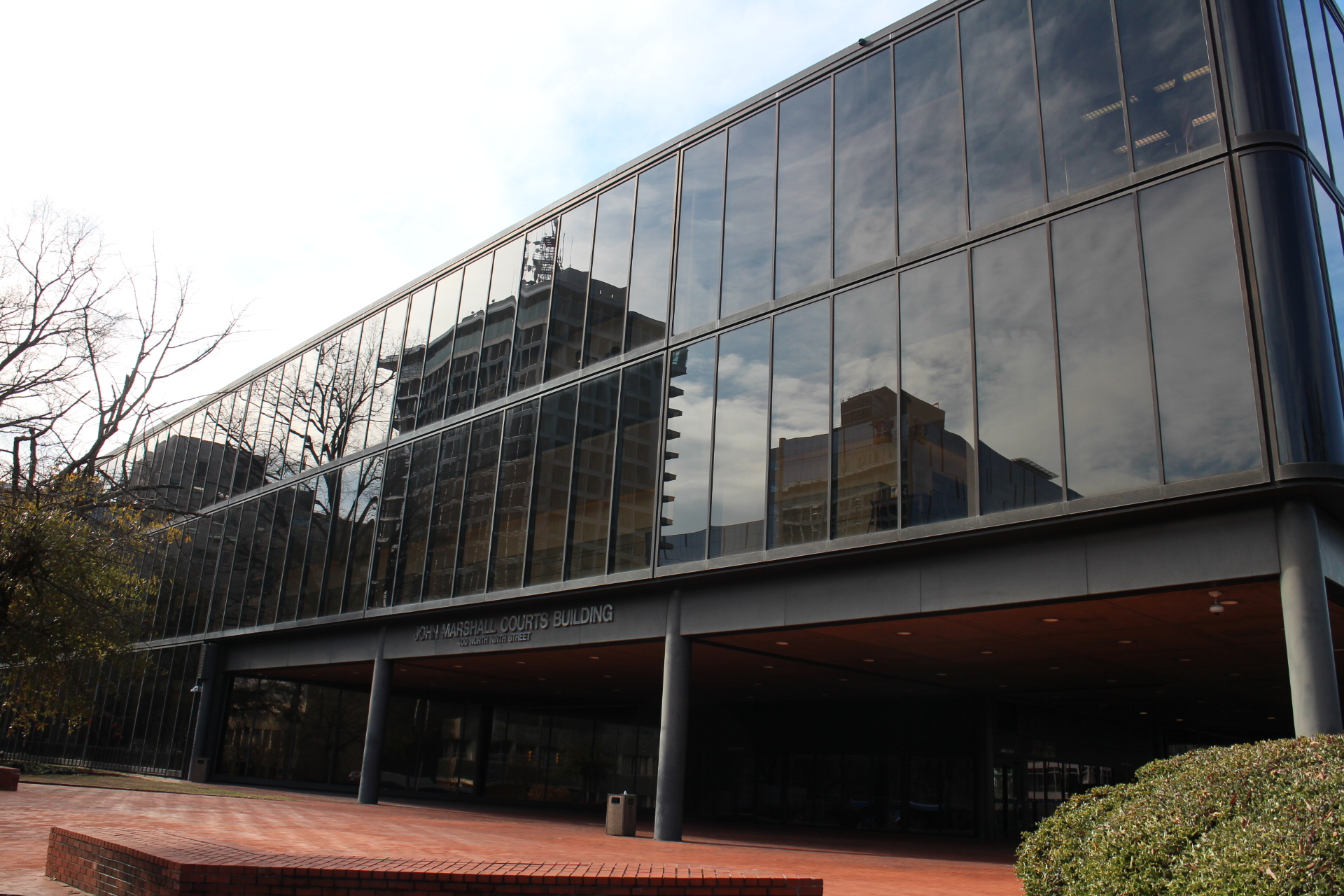Judge dismisses legal challenge to Diamond District financing
A lawsuit challenging Richmond’s new approach to financing the Diamond District project was dismissed in court Friday, seemingly clearing the way for the city to move forward with issuing bonds for the ballpark-anchored development.
After hearing arguments for about an hour Friday, Circuit Judge W. Reilly Marchant tossed out the complaint from local activist Paul Goldman, who alleged that his rights to petition for a referendum of city voters to weigh in on the change were unfairly burdened due to an unclear process in the city’s charter.
Goldman, who similarly challenged the proposed casino in South Richmond that voters twice rejected in separate referendums, filed the lawsuit in May seeking to delay the bond issuance and receive direction from the court on how he could properly petition and collect signatures to require a referendum.
Goldman argued that such details are not specified in the city’s charter and that without them, a petition could be deemed insufficient and ultimately a waste of time and money.
Time was also at issue in the case, as Goldman argued that more time to collect signatures would be provided if the bonds were being issued by a county, which state law requires to hold a referendum.
Goldman said the city bonds could only be challenged if he collected the roughly 11,000 signatures that would be needed within 30 days of the financing ordinances’ approval. Marchant acknowledged in Friday’s hearing that that 30-day window expires June 11.
“I want to exercise my right, but they’ve put an incredible burden on me,” Goldman said in the hearing. Later, he added: “I can’t make the challenge until I know the burden.”
Marchant maintained that he could not rule on the arguments in Goldman’s complaint because no action had been taken to petition for a referendum. Marchant told Goldman that he was effectively asking him to provide an advisory opinion on a hypothetical scenario that had not yet played out.
“That’s not what courts do,” Marchant said.
Later, he added: “It’s not properly before the court whether it’s an unconstitutional burden, because no effort has been made.”
Goldman’s lawsuit challenged City Council’s approval allowing the city to issue $170 million in bonds to finance the new stadium for the Richmond Flying Squirrels and infrastructure improvements for the $2.4 billion mixed-use development’s first phase.
The funding approach, which puts the city on the hook to repay the bonds should the stadium not be built or the larger development fail, is a change from a previous plan to issue non-obligation bonds through a community development authority and with collateral from developer Diamond District Partners.
The move is projected to save the city $215 million in debt costs over the 30-year length of the loans, while also capturing $24 million in state sales tax incentives that are set to expire July 1. Goldman’s lawsuit threatened to delay the bond issuance to after June, putting the city at risk of losing the $24 million in incentives.

A rendering of the new stadium planned along Arthur Ashe Boulevard south of The Diamond. (BizSense file)
The timing of the bond issuance is integral to the city’s planned schedule to deliver the new stadium in time for the 2026 baseball season. Major League Baseball, which oversees minor-league venues like The Diamond and is requiring all pro venues to meet new facility standards, had imposed a 2025 deadline but is allowing Richmond more time in light of the project’s progress.
The $170 million in bonds consist of $130 million in general obligation bonds to fund the ballpark and $40 million in lease revenue bonds for the infrastructure improvements. The infrastructure bonds would be paid for with lease payments from the Flying Squirrels, which would total $66 million over 30 years, while the bond debt for the $110 million stadium would be paid off using tax revenue generated from the surrounding new development.
Goldman argued that the city shouldn’t be issuing bonds for the project because it involves private development and is not solely for a public purpose. He maintained that the city is only issuing the bonds to keep the Flying Squirrels ballclub from leaving Richmond.
Marchant disagreed, stating in his rulings that the city can issue bonds for a governmental purpose, in this case providing citizens with a new ballpark, even if there is incidental benefit to a private enterprise.
Following the hearing, Goldman said he didn’t know what if anything he would do next, describing the petition process upheld by the ruling as impractical and too expensive. He said he might pursue one of his arguments further in federal court, but he said doing so wouldn’t affect the bond issuance timing.
In a written statement after the hearing, Richmond Mayor Levar Stoney said: “We are full speed ahead on delivering a world-class baseball stadium and an exciting new neighborhood for all to enjoy. The Flying Squirrels are here to stay in Richmond!”
The city’s legal team in the case was led by Deputy City Attorney Wirt Marks.
Late last month, Richmond announced that the $130 million bond issuance for the new ballpark helped the city achieve its first AAA credit rating, the highest possible, from bond rating agency Fitch Ratings.
The post Judge dismisses legal challenge to Diamond District financing appeared first on Richmond BizSense.
Recent Posts
GET MORE INFORMATION

Agent | License ID: 0225209440








